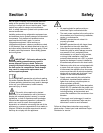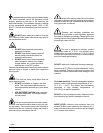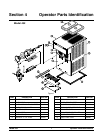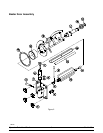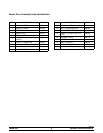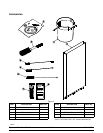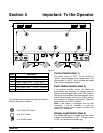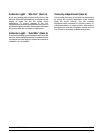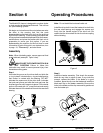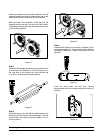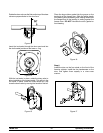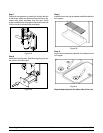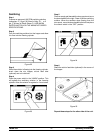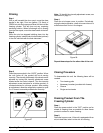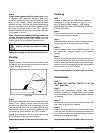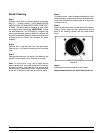
13
Model 432
Operating Procedures
Section 6 Operating Procedures
The Model 432 freezer is designed to produce shake
or slush product at the desired thickness. This unit has
a 4 quart freezing cylinder.
We begin our instructions at the point where we enter
the store in the morning and find the parts
disassembled and laid out to air dry from the previous
night’s brush cleaning. These opening procedures will
show you how to assemble these parts intothe freezer,
sanitize them, and prime the freezer with fresh mix in
preparation to serve your first portion. If you are
disassembling the machine for the first time or need
information to get to this point in our instructions, turn
to page 19, “Disassembly”, and start there.
Assembly
Note: When lubricating parts, use an approved food
grade lubricant (example: Taylor Lube).
MAKE SURE THE POWER SWITCH IS IN
THE “OFF” POSITION! Failure to follow this
instruction may result in severe personal injury from
hazardous moving parts.
Step 1
Lubricate the groove on the drive shaft and slide the
o- ring in place. Lubricate the o- ring and shaft portion
that comes in contact with the bearing. DO NOT
lubricate the square end of the drive shaft. Lubricate
the boot seal groove and slide the boot seal over the
shaft and groove until it snaps into place. Fill the inside
portion of the seal with 1/4” more lubricant and evenly
lubricate the end of the seal that fits onto the rear shell
bearing.
Figure 5
Note: Do not install the boot seal inside out.
Install the drive shaft. Insert the beater drive shaft into
the rear shell bearing and engage the square end
firmly into the female socket of the drive unit. Be
certain that the drive shaft fits into the drive coupling
without binding.
Figure 6
Step 2
Install the beater assembly. First check the scraper
blade for any nicks or signs of wear. If any nicks are
present, replace the blade. If the blade is in good
condition, place the clip over the b lade and install the
blade and clip on the beater assembly. Be sure the
holes in the blade and the clip are securely positioned
over the beater pin.
Figure 7



